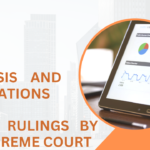Personal injury claims can arise from car accidents and be complex legal processes. Understanding car insurance coverage and procedures can help secure fair compensation. This guide examines key personal injury claim issues involving car insurance.
Thank you for reading this post, don't forget to subscribe!What is a Personal Injury Claim?
A personal injury claim seeks compensation for injuries suffered, often due to another party’s negligence. Car accidents are a common cause of personal injury claims. Compensation aims to cover:
- Medical expenses
- Lost income
- Pain and suffering
Claims follow strict legal procedures. Using a personal injury lawyer is advisable.
Determining Liability
Establishing liability is vital in an injury claim after a car accident. This determines who was at fault and owes compensation. Police reports, eyewitness statements and dashcam or CCTV footage help clarify liability disputes.
Insurance companies rigorously investigate liability before settling claims. Contesting liability without evidence usually fails. Admitting fault when uncertain is unwise – let your lawyer negotiate liability.
Statute of Limitations
Every state imposes strict statutes of limitations on filing injury claims after accidents. These limit the timeframe claimants have – often only 12-24 months. Failing to file in time forfeits your claim rights.
Consult a personal injury lawyer promptly if considering a car accident claim. Delay risks missing the claim deadline.
Using Car Insurance for Injury Claims
Car insurance is invaluable for handling accident injury claims. Different coverages apply, with importance rules governing their use.
Why Injury Claims Matter
Injury claims matter because accidents cause harm. Effects like:
- Long-term disabilities
- Loss of income
- Medical debts
Insurers must fairly compensate legitimate claims. However, they prioritize their interests over claimants. Legal advice balances these interests.
Bodily Injury Liability Insurance
Most policies have bodily injury liability coverage. This protects insured drivers causing accidents by paying victim’s injury claims.
However, it only covers claims up to the policy limits purchased. These range from $25,000 to $500,000 usually. Claims exceeding limits still leave drivers personally liable.
Buying higher limits reduces drivers’ financial risk. But increased premiums result. Evaluating needs and costs help determine ideal limits.
Why Limits Matter
Injury claims often have high values, especially with:
- Severe injuries
- Long hospitalizations
- Permanent impairments
Medical bills, lost wages and lawyers’ fees add up. Policy limits cap payouts – leaving insured drivers responsible for excess claim amounts. Financially ruinous without sufficient umbrella or excess liability coverage.
Uninsured/Underinsured Motorist Coverage
Not all drivers carry adequate bodily injury liability insurance. Uninsured and underinsured motorist coverage protects against them.
These optional coverages pay injury claims when liable drivers lack sufficient insurance. Protecting policyholders from uncompensated losses.
Every state allows uninsured protections – underinsured is also available in most states. Avoiding gaps in financial protection is wise.
The Injury Claim Process
Pursing injury compensation from a car accident involves specific steps for resolving legal and insurance issues.
Notifying Insurers
Inform your insurer and the at-fault driver’s quickly after an accident. Provide known details about:
- Circumstances of the accident
- Damage and injuries
- Other parties and insurers involved
Cooperating fully with your insurer helps your claim. But take care discussing liability until consulting a lawyer. Admissions against interest harm claims.
Investigating the Accident
Insurers thoroughly investigate accident circumstances when injury claims arise. They interview parties involved, first responders attending and eyewitnesses present.
Reviewing crash reports, vehicle damage assessments, medical records and applicable camera evidence assists determining liability accurately.
Using lawyers ensures claim investigations serve your best interests too. Relying solely on insurer findings risks undervaluing injury claims.
Assessing Damages Sustained
Calculating injury claim values involves detailed damages assessments. Key compensation components examine:
Documenting Medical Expenses
- Ambulance services
- ER treatment
- Hospitalization
- Surgery
- Prescriptions
- Physical therapy
- Other care providers
Fully documenting medical costs provides claim substantiation. Allowing appropriate damages recovery.
Calculating Lost Income
Missed work from injuries requires income loss calculations too:
- Paid leave used
- Unpaid leave needed
- Impaired earning capacity
Verifying actual and projected income establishes these losses for inclusion.
Seeking Pain and Suffering Damages
Getting compensated for pain and suffering requires skillful legal advocacy and negotiation. Factors evaluating these intangible harms include:
- Injury severity
- Treatment duration
- Impairment effects on daily life
- Emotional distress
Experienced injury lawyers maximize these subjective but valuable damages.
Settlement Negotiations
Once accident liability is clear and claim damage values fixed, settlement negotiations begin.
Settlement talks between insurers and injury lawyers consider:
- Medical prognosis
- Calculated losses
- Applicable policy limits
- State case law precedents
Successful settlements avoid litigation delays and court costs. But inadequate offers might necessitate lawsuits with binding judgments.
Retaining lawyers without charging expensive hourly fees is vital. Contingency fee representation – getting legal help for a percentage of claim recoveries secured – helps victims pursue fair compensation.
Key Takeaways
- Car accidents often produce personal injury claims
- Proving liability from crashes is required, consult lawyers
- Car insurance helps pay legitimate injury claims
- Insurers protect their financial interests
- Laws strictly limit claim filing times after accidents
- Maximize compensation through skillful legal advocacy
Frequently Asked Questions
How much is my injury claim worth?
Every personal injury claim is unique based on harm suffered. Common car accident settlements range from $3,000 (minor soft tissue injuries) to $75,000 (severe injuries with disabilities). Cases producing million-dollar verdicts usually have catastrophic injuries and definitive liability from reckless drunk drivers for example. Consulting experienced personal injury lawyers provides claim valuations tailored to your specific losses.
How long do injury claims take to settle?
Most straightforward car accident injury claims resolve in 6-9 months. Complex cases with disputed liability, multiple parties and serious injuries might take 12-18 months. Occasionally claims involving permanent impairments and loss of future earnings potential settle after 2+ years. Starting the claims process promptly helps speed resolution while evidence is fresh.
Can I negotiate my own injury settlement?
Attempting direct negotiations with insurers without legal representation handicaps claimants. Insurers have vast experience adjusting accident claims to minimize payouts. Even with police reports favoring your case, insurers leverage their expertise to reduce compensation offered. Retaining an attorney levels the playing field and almost always increases financial recoveries.
When should I hire an injury lawyer?
Consult personal injury lawyers immediately if injured by apparent negligence – don’t rely solely on police reports. Time limits for filing claims necessitate starting legal representation quickly. Additionally, prompt attorney involvement ensures proper evidence gathering, accurate claim valuation and skillful negotiations maximizing compensation for clients. Contingency fee arrangements defer legal costs until securing case settlements or judgments.
Summary
Suffering injuries in a car accident often leads to insurance claim processes and settlement talks aiming for fair compensation. Understanding key issues around proving liability, documenting harms accurately, skillful negotiations and reasonable expectations helps smooth the road to recovery. Retaining experienced personal injury counsel protects legal rights and financial well being when pursuing just rewards after the trauma of crashes producing preventable injuries.










